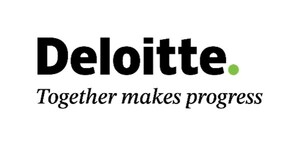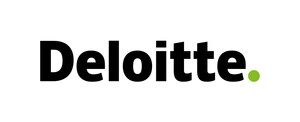
NEW YORK, Dec. 4, 2019 /PRNewswire/ -- Of more than 1,590 C-suite and other executives surveyed, 39.4% report the greatest benefit of using cognitive risk sensing is the early detection of emerging risks and potential threats, according to a recent Deloitte poll. However, just 5.3% of respondents say their organizations use enterprise-wide cognitive risk sensing to manage such risks. In an era of hyperconnectivity, many organizations lack the cognitive technology or risk analytics needed to turn real-time data into meaningful, actionable information.
"Contending with emerging risks is a constant consideration for most risk management, legal, compliance and internal audit teams," said James Cascone, Deloitte Risk & Financial Advisory partner, Deloitte & Touche LLP, as well as Deloitte's U.S. and global predictive risk intelligence leader. "As cognitive technologies improve, analytics techniques evolve for detecting anomalies and recognizing patterns across broad data sets. However, organizations that are skeptical of predictive analytics or aren't as far along in their maturity may not be able to effectively anticipate risks or proactively manage disruptions. Organizational performance can also be adversely impacted if management is unwilling or unable to leverage risk intelligence to enhance resiliency and competitive positioning."
Cognitive risk sensing employs human insights with advanced analytics and machine learning to aggregate, analyze and synthesize the world's available data to interpret signals — both threats and opportunities — more effectively. The intelligence generated can reveal emerging issues and disruptions to an organization's brand, products, services, and third-party ecosystem, as well as anticipate changes in the external environment. Equally significant, cognitive risk sensing provides an ability to ingest internal company data to receive an integrated and forward-looking perspective that can help improve risk prioritization.
Internal audit, for example, is often tasked with assessing and prioritizing risks. Traditionally, it happens through the use of management interviews and analyst reports. Cognitive risk sensing enables internal auditors to cast a wider, more strategic net that can detect emerging trends and their speed of onset that may not otherwise be identified using traditional measures.
Neil White, Deloitte Risk & Financial Advisory principal and global internal audit analytics leader, Deloitte & Touche LLP, added, "As internal audit teams and the organizations they serve use increasingly more advanced technologies to operate, cognitive risk sensing tools can really arm leaders with deeper information to ask tougher questions."
To implement a true cognitive risk sensing capability across the enterprise, organizations should seek to address the below key considerations:
- Cast a wide net: Rather than monitoring a limited-set of well-known risks, your risk sensing analytics should look at a broad view of critical risks, both unknown and known, and leverage copious amounts of data to detect issues early on and drive business growth.
- Build context and maintain situational awareness: Before dismissing outliers as insignificant, consider each new event or piece of information as providing an opportunity to refine the organizational vision and recalibrate the context. If an occurrence is strategically relevant, its rarity does not ¾ in itself ¾ diminish its potential significance and impact on the organization. Linking anomaly detection to the organization's strategy and business context keeps it rooted in risk management rather than reducing it to forecasting for its own sake.
- Take an outside-in approach: An external, integrated view can provide greater context to internal data and analysis and thereby help in evaluating assumptions and potentially erroneous data and conclusions. Additionally, external data points can be presented to management, facilitate internal discussions, and be used to test scenarios designed to gauge likelihood of outcomes and their potential impacts.
About the online poll
On Oct. 10, 2019, a Deloitte Dbriefs webcast, titled "Cognitive risk sensing: Enabling internal audit to anticipate risks," polled more than 1,590 C-suite and other executives about cognitive risk-sensing and internal audit. Answer rates differed by question.
About Deloitte
Deloitte provides industry-leading audit, consulting, tax and advisory services to many of the world's most admired brands, including nearly 90% of the Fortune 500® and more than 5,000 private and middle market companies. Our people work across the industry sectors that drive and shape today's marketplace — delivering measurable and lasting results that help reinforce public trust in our capital markets, inspire clients to see challenges as opportunities to transform and thrive, and help lead the way toward a stronger economy and a healthy society. Deloitte is proud to be part of the largest global professional services network serving our clients in the markets that are most important to them. Our network of member firms spans more than 150 countries and territories. Learn how Deloitte's more than 312,000 people worldwide make an impact that matters at www.deloitte.com.
Deloitte refers to one or more of Deloitte Touche Tohmatsu Limited, a UK private company limited by guarantee ("DTTL"), its network of member firms, and their related entities. DTTL and each of its member firms are legally separate and independent entities. DTTL (also referred to as "Deloitte Global") does not provide services to clients. In the United States, Deloitte refers to one or more of the US member firms of DTTL, their related entities that operate using the "Deloitte" name in the United States and their respective affiliates. Certain services may not be available to attest clients under the rules and regulations of public accounting. Please see www.deloitte.com/about to learn more about our global network of member firms.
SOURCE Deloitte







Share this article